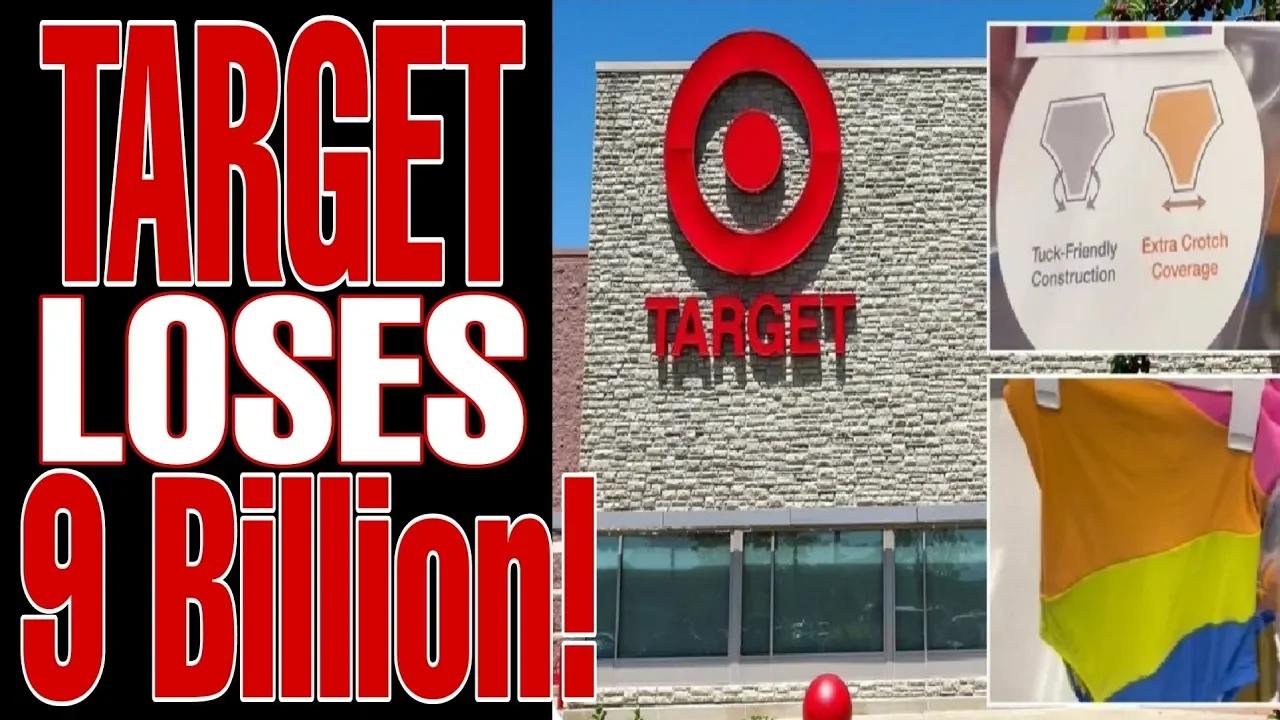Consumer Boycott And Traffic Drop After Target's DEI Policy Change

Table of Contents
Keywords: Target boycott, Target DEI policy, Target traffic drop, consumer boycott, DEI backlash, Target sales, brand reputation, LGBTQ+ merchandise, Pride month, social media impact, corporate social responsibility.
Target's recent shift in its Diversity, Equity, and Inclusion (DEI) policy has ignited a significant consumer boycott, resulting in a noticeable drop in store traffic and online sales. This unprecedented reaction highlights the complex interplay between corporate social responsibility (CSR), consumer sentiment, and brand reputation. This article delves into the causes and consequences of this backlash, examining the impact on Target's financial performance and the broader implications for businesses navigating the sensitive terrain of DEI initiatives.
The Target DEI Policy Change and Public Reaction
Target's updated DEI policy, particularly its emphasis on LGBTQ+ inclusivity during Pride month, became the focal point of the controversy. The specific elements that triggered the boycott included the retailer's partnerships with LGBTQ+ designers and the prominent display of Pride-themed merchandise. This move, while intended to promote inclusivity and celebrate diversity, was met with fierce opposition from a segment of the consumer base.
- Specific elements causing controversy: The collaboration with LGBTQ+ designers like Abprallen, whose merchandise featured provocative designs, sparked outrage among some customers. The prominent placement of Pride-themed merchandise throughout stores, rather than in a designated section, also fueled the backlash.
- Negative social media reactions: Social media platforms like Twitter and Facebook became battlegrounds, with hashtags like #BoycottTarget trending for weeks. Consumers shared images of empty shelves, expressing their intent to shop elsewhere, and organized online campaigns to encourage others to participate in the boycott.
- Mainstream media coverage: The boycott received extensive coverage in major news outlets, amplifying the controversy and bringing it into the national conversation. This media attention further fueled the fire, solidifying the boycott as a major news story.
The speed and scale of the backlash were astonishing. Within days of the policy's increased visibility, the social media outcry escalated, translating into tangible impacts on Target's in-store and online traffic.
Quantifiable Impact on Target's Traffic and Sales
While precise figures haven't been officially released by Target, anecdotal evidence and industry analyses suggest a noticeable decline in both in-store traffic and online sales. Several reports indicate a significant decrease in foot traffic to Target stores, particularly during the crucial shopping periods of the initial rollout of the pride merchandise.
- Statistics on store visits and sales: While Target has not released specific sales figures directly attributable to the boycott, several financial analysts have pointed to a dip in overall sales during the period in question when compared to the same period in previous years.
- Stock price fluctuations: Target's stock price experienced some volatility during the period of the boycott. While other factors certainly influenced this, the negative publicity and consumer backlash likely contributed to the volatility.
- Potential financial losses: The financial impact of the boycott remains to be fully assessed, but analysts predict potential losses in millions, potentially impacting quarterly earnings. The long-term consequences are harder to predict, but a damaged brand reputation could have lasting effects.
Analysis of Consumer Sentiment and Boycott Motivations
The motivations behind the Target boycott were multifaceted and reflect a complex interplay of religious beliefs, political ideologies, and concerns about the perceived appropriateness of certain products for children.
- Religious objections: Some boycotters expressed concerns about the perceived promotion of LGBTQ+ lifestyles, citing religious objections and moral concerns. This is a reflection of deeply held beliefs and values that clashed with Target's DEI initiative.
- Concerns about "woke" corporate culture: The perception that Target's DEI policy reflects a broader "woke" corporate culture alienated many customers who felt their values were not being respected or represented.
- Political polarization: The controversy became intertwined with broader political divides, with the boycott gaining traction among certain political groups and figures. This further exacerbated the existing tensions.
- Perceived harm to children: A major point of contention for many boycotters was the concern that the LGBTQ+ merchandise and its prominent placement might expose children to ideas considered inappropriate or premature.
Understanding the diverse perspectives involved is crucial to comprehending the scope and complexity of the Target boycott. While some viewed the boycott as a necessary response to what they saw as inappropriate corporate messaging, others saw it as discriminatory and harmful.
The Broader Implications for Corporate Social Responsibility (CSR)
The Target boycott serves as a cautionary tale for companies striving to balance social responsibility with maintaining consumer loyalty. It highlights the delicate balance businesses must strike when implementing DEI initiatives.
- Balancing social responsibility and consumer loyalty: This case demonstrates that even well-intentioned DEI initiatives can face significant backlash if they are not carefully executed and communicated.
- Impact on brand reputation and stakeholder relationships: The boycott significantly damaged Target's brand reputation, eroding trust among a portion of its customer base and straining relationships with various stakeholders.
- Potential for future boycotts: This incident sets a precedent that may embolden future boycotts against companies perceived as promoting controversial social or political agendas.
The incident underscores the inherent risks and rewards associated with CSR strategies. While engaging in social responsibility initiatives can be beneficial for brand image and attracting socially conscious consumers, it also carries the risk of alienating a significant segment of the market.
Target's Response and Damage Control Strategies
Target's response to the boycott was largely defensive, with statements emphasizing their commitment to inclusivity and their right to support the LGBTQ+ community. However, these statements did little to appease the boycotters.
- Target's statements: Target released several public statements attempting to address the concerns raised, but these were largely ineffective in stemming the tide of the boycott.
- Actions taken: While Target hasn't publicly reversed their DEI policy or removed all Pride-themed merchandise, there were indications of adjustments, including removing some items from certain stores and re-strategizing display approaches.
- Changes to the DEI policy: The extent to which Target's internal policies have changed is not publicly known. The company has not explicitly outlined any revisions to its policies as a direct result of the boycott.
The effectiveness of Target's damage control efforts remains questionable, suggesting a need for a more nuanced approach to public communications and engagement with different segments of their customer base going forward.
Conclusion
The Target boycott illustrates the significant consequences that can arise from implementing DEI initiatives without careful consideration of potential consumer backlash. The substantial drop in traffic and sales, coupled with the damage to Target's brand reputation, highlights the precarious balancing act companies face when striving to uphold their social responsibility commitments. The incident underscores the importance of understanding diverse consumer perspectives, developing effective communication strategies, and rigorously assessing the potential risks before launching significant DEI initiatives. The long-term effects of this boycott remain to be seen, serving as a case study on the complexities of corporate social responsibility in the modern business environment.
Call to Action: What are your thoughts on the Target boycott? Share your perspective on the impact of DEI policies on consumer behavior in the comments below! #TargetBoycott #DEI #Corporateresponsibility #BrandReputation #TargetDEIPolicy

Featured Posts
-
 Cardinal Beccius Trial New Evidence Suggests Injustice
May 01, 2025
Cardinal Beccius Trial New Evidence Suggests Injustice
May 01, 2025 -
 Ofcom Complaint Filed Over Chris Kaba Panorama Police Watchdogs Action
May 01, 2025
Ofcom Complaint Filed Over Chris Kaba Panorama Police Watchdogs Action
May 01, 2025 -
 Prince William Shows Support Meeting With Gail Porter To Combat Homelessness In Scotland
May 01, 2025
Prince William Shows Support Meeting With Gail Porter To Combat Homelessness In Scotland
May 01, 2025 -
 Kampen Start Kort Geding Tegen Enexis Aansluiting Stroomnet Geweigerd
May 01, 2025
Kampen Start Kort Geding Tegen Enexis Aansluiting Stroomnet Geweigerd
May 01, 2025 -
 Boxeo En Edomex Reserva Tu Lugar Antes Que Se Acaben Las Plazas
May 01, 2025
Boxeo En Edomex Reserva Tu Lugar Antes Que Se Acaben Las Plazas
May 01, 2025
